In a recent parliamentary inquiry, Labour MP John Healey (Wentworth and Dearne) posed a question to the Ministry of Defence regarding the British Army’s recruitment targets and actual numbers each year since 2010.
The response, provided by Andrew Murrison, Parliamentary Under-Secretary for the Ministry of Defence, offers a detailed look into the recruitment patterns of the Army, particularly concerning the Other Ranks.
The British Army has consistently fallen short of its recruitment targets for other ranks each year since 2010, as highlighted by the recent Ministry of Defence data. The figures reveal a cumulative deficit of 22,350 in the Basic Training Starts (BTS) Targets for British Army ‘Other Ranks’, compared to the total recruitment goal of 119,530 set over the period from 2010 to 2023.
The first table presented by the Under-Secretary outlines the Basic Training Starts (BTS) Targets for British Army Other Ranks by financial year, with no specific targets set for officers:
Table 1: Basic Training Starts (BTS) Targets for British Army Other Ranks by Financial Year
| Financial Year | BTS Target (OR) |
|---|---|
| 2010-11 | 8,350 |
| 2011-12 | 10,530 |
| 2012-13 | 9,830 |
| 2013-14 | 9,380 |
| 2014-15 | 9,370 |
| 2015-16 | 9,550 |
| 2016-17 | 10,200 |
| 2017-18 | 9,770 |
| 2018-19 | 9,990 |
| 2019-20 | 9,400 |
| 2020-21* | 9,870 |
| 2021-22 | 6,670 |
| 2022-23 | 8,220 |
Note: The 2020-21 target was initially set at 9,870 but was later adjusted to 8,270 due to Integrated Review (IR) measures.
The second table reveals the BTS Actuals for both Officers and Other Ranks in the British Army:
| Financial Year | Total BTS Actuals | Officer BTS Actuals | Other Ranks BTS Actuals |
|---|---|---|---|
| 2010-11 | 8,520 | 740 | 7,780 |
| 2011-12 | 10,890 | 690 | 10,200 |
| 2012-13 | 10,060 | 620 | 9,440 |
| 2013-14 | 6,810 | 560 | 6,250 |
| 2014-15 | 7,850 | 500 | 7,350 |
| 2015-16 | 8,100 | 550 | 7,550 |
| 2016-17 | 7,620 | 640 | 6,980 |
| 2017-18 | 6,600 | 620 | 5,990 |
| 2018-19 | 6,500 | 640 | 5,860 |
| 2019-20 | 9,580 | 630 | 8,960 |
| 2020-21* | 9,330 | 650 | 8,680 |
| 2021-22 | 7,230 | 650 | 6,580 |
| 2022-23 | 6,080 | 520 | 5,560 |
Please note: The figures are for the Regular Army only and exclude Gurkhas, Full Time Reserve Service, Mobilised Reserves, Army Reserve, and other reserves. Figures have been rounded for presentation purposes. Totals and sub-totals have been rounded separately and may not sum exactly due to this rounding.
Several important notes and caveats accompany these figures:
- The data pertains only to the Regular Army, excluding Gurkhas, Full Time Reserve Service, Mobilised Reserves, Army Reserve, and other reserves. However, it includes personnel transferring from GURTAM to UKTAP.
- Basic Training Start figures until 2016/17 include both Phase 1 and Phase 2 training entrants. Post-2016, following a change in the definition of trained strength, the figures represent only those entering Phase 1 training. This change in definition means figures from 2017/18 onwards are not directly comparable to previous years.
- For presentation purposes, figures have been rounded to the nearest 10, and totals may not sum up due to separate rounding of totals and sub-totals.
This comprehensive breakdown of recruitment figures over more than a decade highlights the challenges faced by the British Army in meeting its recruitment targets.



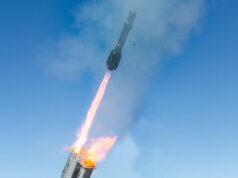
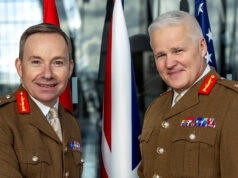



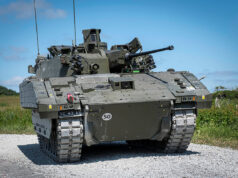
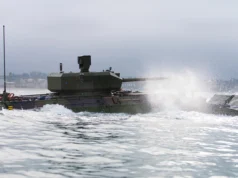
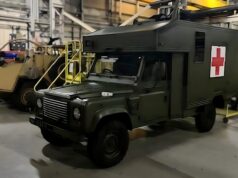


It could well be me but the second list number don’t even seem to match the first? Anyone? 2010 first block says 8350. Second is 8520 split then to Off/OR.
second chart you are looking at right hand column only for the comparison – it’s the OR (Other Rank) target and actuals. The second chart also includes officer actuals and a total.
O.K. Thanks Bob. So 8350 2010 target but 7780 actual, a shortage of 570.
Spot on
Which means that since 2010, there have been more than a unit’s worth of black holes flowing up the manning pyramid. And that’s just if 2010 was in isolation.
Makes you cringe, doesn’t it.
There are over 6,000,000 people in the UK ages 15-24 and the Army can’t recruit 8,000?
or to put it another way, fewer than 8000 of them are willing to join. Or a third way, fewer than 8000 were able to get through the recruitment process…
To put this into context, I joined the TA in 2003. 6 weeks after walking in to express interest, I was in uniform, attested and starting training. I joined the regular Army in 2007. I left in 2017. When I decided to give the reserves a go, it took me 9 Months from submission of paperwork to being taken on strength. And that was as a re-joiner (ie within 2 years of leaving service, so no medical, security clearance still in place etc)
I am myself a young person and most of my friends are young. Not one besides myself is even considering the remote possibility of a military career. Most references to working in defence are followed by variations on “bombing Iraqi children”.
Social media coverage of defence is overwhelmingly negative, most people don’t realise that their armed forces allow them to criticise their armed forces.
Was Capita doing the recruit program then? If so that’s your answer.
…or to put it another way, Capita can’t recruit 8,000.
Blair’s illegal wars and redundancies while on active duty have tarnished the career option !
Exactly… what a load of bollocks! Same as “oh we have to mothball or sell ships, as we cannot crew them” bollocks and a load of shite!
The problem is everywhere. Teachers can’t recruit, NHS either. The police are taking on children. The hospitality sector where my business is…try taking on young people to work shifts or weekends…they don’t want to know. This is where legal immigrants come in. They’ll work where “our” own youngsters won’t.
The Gurkha omission is always telling and must be considered when viewing the ORBAT.
The Gurkhas form several sub units from the CS/CSS formations as well as the well known RGR Battalions.
Nice charts… the columns they left out of course, are the ones showing the ‘savings’ against allocated recruitment and wage budgets for those years.
That’s not how the budgets work. That gets shown as underspend which can be taken as a ‘saving’ by treasury in subsequent years. That’s why you often get a run to spend at year end. But also a scrabble to cut spend to ’balance the books.’ In year accounting drives really perverse behaviours.
But in the TLB, it’s actually very hard to move money between budgets.
Capita took on recruitment in March 2012, pledging to improve recruiting compared to the in-house system.
And a total disaster they are.
Corporations have too much influence over Governments , eg . Babcock boasting that the UK armed forces can’t go to war without them !
Another great joke Graham…..
As an ex-REME officer, I was troubled by Babcocks taking over Base Repair from ABRO (formerly the REME static workshop organisation).
My concern was confirmed when I heard that they had sold or scrapped a lot of useful heavy tools and equipment at the Bovington site without replacement.
I am not sure how good they are at doing BIR (Base Inspection & Repair) for AFVs etc which was the successor to Base Overhaul (BOH). Would be interesting to hear some anecdotal evidence.
They handed back the Bovington Detachment Building near to the test track against everyone’s advice including Army. This was a purpose built facility easy to service and recover vehicles to. This caused delays repairing training vehicles. There was not enough space or doors in the main workshop over the road for efficient operation. This resulted in heavy machine shop being scrapped, stuff like milling machine and gas cutting machine with 4 meter bed. Many lathes were removed with fork lifts for cheapness which can bend the beds by a few thou’ and left in lean to to go rusty.As for buildline they have had staff shortages and many parts issues , not involving BAE in this was a mistake. As they have to restore the building after contract ends machine shop replacement will run to millions . Neither the Army or staff were happy about sale or performance .
Thanks Pete for the info. Shocking. Is the contract due to end soon or has it been extended?
I could never understand contracting this work out. Everyone was happy with the in-house arrangement (18 Base Wksp REME, then ABRO Bovington). With BIR replacing BOH c.2001, the in-house cost was driven down substantially.
Laughingly they got an extension for up to five years ! They are now back in the BOV DET building as LM contract failed.
Just like Capita got an extension as a reward for poor recruiting?
I don’t understand why a crap firm gets hired to do outsourced services and then re-engaged after awful performance.
LM contract – was that anything to do with WCSP?
Is there a reason for not recruiting more Gurkhas ??
Think the Government doesn’t like they have to pay them properly and give them same pensions !
There is a total quota agreed with the government of Nepal. We can’t go too high against that.
And another issue rarely spoken of. The agreement largely persists because retiring Gurkhas returned to Nepal with their pension and are comparatively wealthy – often they use money to the benefit of their community. Now they have the right to remain in the U.K. the cycle is somewhat broken. So the U.K. government is trying to be careful (actually the Army is trying to be careful).
Gurkhas also come with restrictions. Eg couldn’t go on SHADER because the agreement with Iraq was for British soldiers only (I even struggled to deploy South African nationals in my unit). Gurkhas wouldn’t be deployed on MACA taskings in support of security (as in NI)
Great soldiers in a shooting war. Not a panacea.
There are only so many Gurkha units.
It’s because they make it so hard to join and it takes ages young people wont wait 10 months to hear back
Tim wrote:
<b>”It’s because they make it so hard to join and it takes ages young people wont wait 10 months to hear back”</b>
I was actually in Officer recruiting just before we went over to Capita. Before, I had full recourse to the civies who ran the show and if we had any hiccups I could always touch base with them and they would always help me out. Then we went over to Captia and standards fell.
it was so bad that RMAS held a meeting on a Saturday morning at Churchill Hall, I tipped up with 2 Lt Cols and the people running the show should have come prepared wearing body armour and a tin lid because all they received from the audience (all officers in officer recruiting) was a load of flack telling them that the system was broke. Then the head honcho took to the stage and uttered:
“You will make it work”
And that was it.
The main problem we had, was the face-to-face meetings that applicants had, was replaced with a computer application form and it decided who was accepted and who was refused. Totally removing the human element. I’ve mentioned before that one of my female applicants was refused because she stated on her computer application that she had broken her leg as a child. (She was now at university) she put in a protest letter stating that she was physically fit and running X country for her county and the Uni and the reply she received back from a civy was she wouldn’t pass basic training. (In the meantime she had joined the TA and the uni OTC) Ended up with driving down to Upavon which I masked as a visit and then tried to explain the situation to the bloke in charge who a few months before had worked at Currys (meaning he knew SFA about the miltary) he wasn’t having any of this, so we ended up travelling across to Westbury ( I knew the girls there, who had helped us out a lot) and the manager there managed to get a break for our girl which entailed her keeping a diary for a year of her fitness regime she having none of this walked. Another female applicant was refused via the computer because she stated that she had suffered from acne as a teen, yet her application photo showed she was a stunner, with not a blemish to be seen, she also walked. Again that lack of a military touch at the initial point as found in a recruiting centre (yes the RC are there, but the initial touch is now done on line and you only meet them after the computer says ok you can pass go and collect that Kings shilling.
During our visit to Trenchard I couldn’t help but notice how the army had parachuted in a load of young soldiers to sit alongside their new recruiters to help familiarise them in the ways of the army and if you do drive pass, have a butchers at the car park, somebody is earning a lot of money.
On that note Capita received a two year extension in March 2022
A mate of mine who had done about 9 years on submarines then left for a couple of years, went to join back up and was refused because he was ‘too heavy’. The guy was a effin’ ‘unit’, mostly muscle. He got into wild swimming and swam the channel pretty soon after.
Another mate who was trying to join the reserves after (at least 22 years) was told because he had been to sickbay with a bad back 5 times he wasn’t fit enough. He pointed out that because he ran Field Gun for a large chunk of that time and it was mostly muscular he didn’t really have a ‘bad back’ but ended up tossing it off because of it.
I genuinely despair about the way our Forces are going, wild horses wouldn’t get me back in.
That story reminded me of my own little run in:
I was tasked for a MRI and had to attend the military wing of a civy Hospital anyway before anything happened i was weighed by a civy nurse and afterwards she replied you are classed as obese, I started laughing and replied, I gym it 5 times a week, I run 5 miles every other day, I do Karate 3 times a week with the local civy club and I do army PT twice a week, look at me, do i look fat? She replied , the chart says you are. It is that subscription to what a so called expert has written in ethical tofu which ruins everything
These idiots seem to rely just on a BMI reading? A true professional would understand the limitations of BMI alone.
‘Basic Training Starts’ – new term on me. Presumably means somone who has started Basic Trg ie Ph 1 trg.
As important is how many of those actually finish Basic Trg and then go on to complete Ph2 trg and then join their first unit! Admittedly that is not a recruitment issue but it feeds into actual under-manning in units.
From Parliament 2019:
Capita’s contracts with the Ministry of Defence
Inquiry
Scope of inquiryThe British Army needs to continually recruit new soldiers and officers to replace those who leave or retire from service. In July 2018, the Army was 5,600 regular soldiers and officers (7%) below its required strength and will not meet its 2020 target of 82,000 regulars. It has significant skill shortages in specific trades. The failure to meet its recruitment requirements can affect the Army’s ability to meet operational demands and new threats.
In 2012, the Army contracted with Capita to transform its recruitment approach. The Army committed £1.3bn to a 10-year programme and partnership with Capita to manage its recruitment process. Since the contract began Capita has not recruited enough Army regulars and reserves in any year. In 2017-18, Capita recruited 6,948 fewer regular and reserve soldiers and officers than the Army’s target. The shortfall has been largest for regular soldiers. Since the contract began, Capita has missed the Army’s annual target for regular soldiers by an average of 30%, compared to 4% in the preceding two years.
In April 2017, the Army agreed to reduce Capita’s recruitment targets by around 20% for the next three years as it believed Capita was insufficiently incentivised to improve performance. Over the last year, the Army and Capita have introduced some significant changes to their approach to recruitment, although these have not yet resulted in the Army’s requirements for new soldiers being met. The cost of the Capita contract has risen by 37% to £677 million. The Project will not achieve its planned savings of £267 million for the Ministry of Defence. The Army has begun to consider options for the successor contract to start in 2022 and has commissioned a review to understand the lessons from the Project.
A recent NAO report has found that the Army has not managed either the project, or contract, effectively. Moreover, it found that the Army and Capita underestimated the complexity of the proposed changes to recruitment.
The Committee will challenge officials from the Ministry of Defence and Capita on why the Project is still failing to meet recruitment targets and how they plan to respond. Members may also wish to scrutinise the Army’s management of the Recruiting Partnering Project.
The Committee may also wish to examine the performance of MOD’s other contracts with Capita and the performance of MOD’s contract with Annington Property Limited.
No surprise really. The Army doesn’t have a lot of positives going for it these days sadly. Lots of news of poor accommodation, equipment delays. No figurehead or national engagement. Really a poor shit show.
I was involved in surveys here in AUS (that no one ever read) about this. So note this is australia but we suffer from a lot of the same issue. The interesting this was retaining people. Less than 20% would recommend the military for their children. That number did vary by service. RAAF highest, navy lowest. But if you take out the number 1, military has a bad rep after time in Afghanistan and Iraq
The major other reason and I was quite surprised when I heard this several times and going to use what I remember someone said to me ” Why would I serve under or pledge to defend some one who hates me and my generation and everything we stand for. They continuously call us the worst generation when all they did was stand on the shoulders of the parents”
The other was the QOL or the complete abscence of freedom. The military controls every aspect of your life, they tell you where to live, they can move you to a completely different country at their whim and theres nothing you can do. The military use and abuse then toss you onto the garbage heap when they are finished with you.
I think a change that one of the western militaries should change to is that when you join the military you join as a occupation at a location. I am going to use AUS locations because I know them. Under the current system you could be from townsville, have there, be born and raised. Your wife has a nice, you own a house and kids are in the good school. You join the army, you do the training the army says congrats we are sending you to adelaide 6000 + kms away, If the army does need you in another location they can sit down like an adult and the same way that any commercial company does and negoiate a deal to make it worth moving
I’m sure there’s a lot there that would translate to young people here. When I was young it was “Join the Army and See the World” also getting a trade along the way. Moving round never bothered me, in fact new locations was a good way to learn about your own country not to mention the rest of the world. I think the UK issue is also down to money. Imagine the money the government is saving in wages and future pensions. I think they are happy to starve our forces of manpower. I also think unless the UK is prepared to cut all government departments and cut the public spend overdraft things will only get worse which I guess in French means we are f**ked.
Pay wasn’t an issue in the survey because ADF are well paid. I think a corporal in the UK makes about 37 000 pound (70K AUD) but base salary for a pte just out of IET is 71K AUD. That doesn’t take into account accomadation and allowances which are also better in the ADF
A corporal in the ADF depending on exact band is close to or over 100k. Also ADF pensions dont come out of the defence budget unlike the UK
My cousin’s son joined the Canadian Army right out of high school and the covid isolation. Pay was not an issue for him, it was just to get out of the lockdown, although pay in the Canadian armed forces has improved which is an added bonus for him.
There are 16,000 vacant positions in the forces currently.
He is definitely not cooped up anymore. lol
I’m not sure what the rates of pay are these days. It was poor when I joined, but I never joined for the money. Things improved when the Conservatives got into power in the later 70s and the armed forces got a 28% pay rise (over 3 years) to bring us into line with the other emergency services. My original comment though was how much the country is saving by not having those posts filled.
I am sure you know that living-in British soldiers pay for food, accomodation, Council Tax (CILOCT) etc
….and no real active service.
Isn’t it now blindingly obvious that the Capita contract needs to be cancelled and recruitment taken back in house.
That might not solve all the problems but the pre Capita years showed much smaller shortfalls against targets. The conversion rate of applications to appointments is pathetically low.
The greatest mistake in all the privatising is that the focus shifts from delivering the product or service to maximising the mark up for profits. All about greed & plundering the system rather than serving the nation best.
Number of ex-forces living on the streets is not a good advert for recruitment , saw one recently with a sign saying ex -Royal Engineers looking for work !
Bloody sad 😕
It’s all Labour’s fault!
Just like the other post I put on for the navy ,shutting down recruitment officers in towns and cities don’t help .Remember the day when you had TA centres in town’s cities even in villages all over the UK .Ok only part time but it all help in interest for the forces . 🇬🇧
Out of curiosity how is this worked out?
At any time any organisation has a certain number of people leaving and a certain number joining, if roles can’t be filled until someone leaves there will always be gaps or people leave unexpectly etc. Same happens with the company i work for there is a headcount and budget which makes it hard to ensure overlaps that don’t result in open vacancies in every report.
A turnover rate of around 8-10% is pretty common in the private sector which these figures seem to indicate.
Whether the target is right is a whole different question.
A couple of months back, I made claims that the Army were making redundancies on the sly, by reducing the number of soldiers in their Battalion MT sections, and returning them to infantry companies, or ‘easing them out the door’ on other ways.(redundancy)
That has now actually happened. So to the mealy mouthed punks who rock up here and add their ‘two pennorth’ now and again, I ******* “*”* “*”* “*!
The work that the MT sections did, will now be carried out by private companies.
Bean counters/accountants, private companies and Gov departments have been running the Armed Forces for decades now. Running those armed forces into the ground.
I have no idea how, but It truly has to stop.
IT’S outrageous 👍
What the army is up against here is the British government’s and public’s consistent anti-militarism: UK defence policy has always been to reduce the armed forces down to the lowest possible level it can get away with, whilst having someone else do our country’s fighting for us. Right now it’s Ukraine, since the end of the Cold War it has been the USA, in WWII the Soviet Union, in WWI the French and Russians, in the French Revolutionary and Napoleonic Wars it was central European nations, and so on.
We only pull our weight as a nation with large properly professional armies during long wars: the second halves of WWI & II, pretty much all of the Cold War (luckily for the Falkland Islands and Kuwait) and eventually in the Napoleonic. These armies were the best we have ever fielded, but were all got rid of immediately after hostilities ceased, with no consideration of the future.
Hence we’ve had only three Conscription Acts – 1916, 1938 and 1947 – since the Civil Wars and the New Model Army, barely covering thirty years of that time.
Labour and Tory governments have both been as bad for enacting defence cuts (called ‘reviews’ in the typical British euphemistic way), which have steadily reduced the effectiveness of the Armed Forces. Liz Truss’ proposal to raise the percentage of GDP spent in defence to 3% probably did as much to end her time as PM as the rest of her economic policy.
We started fights we couldn’t finish in Iraq and Afghanistan, and now we daren’t even start a fight with anyone, being one of the weediest kids in the geopolitical playground. When Donald gets in later this year and dumps support for NATO and Ukraine off the agenda, we’re all going to have to man the *#@& up and defend European civilisation against the barbaric Asiatic hordes.
All of Europe is facing the most serious existential crisis since the Mongols came galloping across the plains, since we are once again having to confront a vast country which exists purely to fight wars and lay waste to those they perceive to be weaker than them. 🙄
Capita have been failing for 13 years and yet still keep the contract, no private company would tolerate such incompetence from a supplier: They have recently been giving the contract for carrying out medical assessments for Royal Navy recruits; a backlog is now developing.
As an outsider, I do wonder whether the pay and perks aren’t enough, but that the biggest issue is the media coverage that really highlights questionable interventions, the severe injuries sustained in Afghanistan and the attention on PTSD. Late Cold War the armed forces was about training for a conflict that likely wouldn’t happen and a lot of playing sports and foreign travel. Now it seems more about limb amputations and insufficient psychological support. And anyone who is following closer is probably aware of the trend of cutbacks and toward unmanned systems. A difficult time to recruit, especially when left to Capita.
Good points. I think a lot of parents will put off their son/daughter from joining the forces for such reasons and also girlfriends/boyfriends will influence too.
Why join the forces now? There is virtually no active service. Little fun travel (ie sunshine postings). Discipline is tough. Postings and detachments (Estonia, Poland etc) can be very far from home town/friends/boyfriend/girlfriend. Personal freedoms are curtailed. Accomodation can be poor. Sport opportunities reduced. Equipment is often older than the new recruit – depressing. Some of the work can be ‘not as expected’ – helping with national crises such as pandemic, flood relief etc.
Is anyone surprised when there are government lawyers spying on injured veterans to see if they are really injured. That along with chasing us NI vets whilst giving the IRA a pass. Who would want to join when you are treated like dirt when you get out?
What might be putting off people joining is how they are put on the scrapheap after finishing their service, while illegal migrants are treated better than ex-soldiers.
The Daily Telegraph today reports that 30% of service personnel are unfit to fight, with the army being the worst hit. In my day it was just 10%.
Yet another privatisation that’s failed… like so many others….